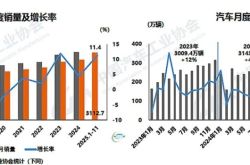Express delivery files for IPO in the US, why is this former unicorn's path becoming narrower?
![]() 09/28 2024
09/28 2024
![]() 489
489
Having been established for ten years, rumors of its listing have persisted for four years, and now Express delivery's IPO plan has finally come to fruition.
In 2020, Du Shangbiao, Vice President of Express delivery, stated that the company might go public soon. Since then, Dada and SF Express City have successively entered the capital market, but Express delivery's IPO process remained stagnant.
Early in 2024, the Executive Meeting of the State Council deliberated and approved the "Guiding Opinions on Promoting the High-Quality Development of the Instant Delivery Industry," proposing to strengthen the encouragement and guidance of the instant delivery industry. With favorable macroeconomic policies and increased attention from the capital market towards instant retail, Express delivery found an ideal timing for its listing.
Recently, Express delivery officially submitted its prospectus to the US Securities and Exchange Commission (SEC), planning to list on Nasdaq under the ticker symbol "FLX".
However, as more players prioritize timeliness and service quality, the moat that Express delivery built around its "one-on-one urgent delivery" model may no longer be impregnable.
Misaligned competition, small but not beautiful
When Express delivery was established in 2014, the instant delivery market was still in its infancy.
In its early stages, most instant delivery players chose the B-end market with larger order volumes and more customers. However, Xue Peng, the founder of Express delivery, believed that the B-end market relied too heavily on platform resources, with pricing power and profit margins constrained by giants. To maintain relative independence, Express delivery had to continue to focus on the C-end market.
This led Express delivery down a differentiated development path of being "small but beautiful," adhering to the model of "independent on-demand express delivery."
As the name suggests, "independent" means unlike Dada and SF Express City, which rely on JD.com and SF Express for resource sharing and business collaboration, Express delivery independently allocates delivery capacity based on decentralized user demands. "On-demand express delivery" refers to couriers focusing solely on a single order throughout the delivery process, without picking up or delivering other orders along the way, realizing "one-on-one urgent delivery" services.
According to iResearch data, it is estimated that from 2023 to 2028, China's independent on-demand express delivery market will grow at a compound annual growth rate of 27.8%, exceeding the 19.1% growth rate of China's overall on-demand delivery market.
In the niche segment of "independent on-demand express delivery," Express delivery has secured its position as the industry leader. In 2023, Express delivery ranked first with a 33.9% market share, far exceeding the 5.4% market share of the second-ranked player.
The biggest problem is that this niche market is still relatively small. According to iResearch data, the total market size of China's on-demand delivery market in 2023 was approximately RMB 338.5 billion, of which the independent on-demand express delivery market was approximately RMB 15.6 billion, accounting for only 4.61% of the total market.
Analysts point out that in China's instant delivery market, most repeat purchases are concentrated in B2C scenarios such as food delivery, fresh produce, and retail convenience, accounting for over 90% of the market share, rather than C2C platforms like Express delivery that specialize in the "one-on-one" niche.
Judging from Express delivery's current situation, niche scenarios appear to be causing the company to hit a growth bottleneck.
From 2021 to 2023, Express delivery generated revenues of RMB 3.04 billion, RMB 4.003 billion, and RMB 4.529 billion, respectively, with revenue growth rates declining from 31.68% to 13.14% during this period. In the first half of 2024, Express delivery's revenue growth rate fell further to 7.65%, with revenues of RMB 2.285 billion.
Perhaps for Express delivery to achieve further expansion, it still needs to move towards the larger B-end market. Unfortunately, the B-end market landscape is now relatively stable, with business flows and logistics mutually dependent. Express delivery, which has long adhered to its "independent" attribute, may find it difficult to form an inseparable relationship with any upstream platform.
In 2022, Express delivery collaborated with Douyin Lifestyle Services to expand its B-end market business. However, at the same time, Douyin's third-party logistics service providers also included Dada, SF Express City, and UU Runners, limiting the traffic support received by Express delivery.
The moat is gradually shallowing
Express delivery's insistence on the business logic of "independent on-demand express delivery" stems from the belief that when users urgently need a delivery, price is no longer the primary consideration; speed and reliability are key.
However, as more players prioritize service timeliness and standardization, the story of Express delivery's "one-on-one urgent delivery" is no longer novel and lacks a clear competitive advantage.
Currently, several instant delivery platforms have introduced "direct delivery by a designated person" services.
In comparison, for an order for a document weighing less than 5 kg and spanning a distance of approximately 10 kilometers, the price for direct delivery by a designated person is RMB 25 on Meituan Runners, RMB 28.5 on Ele.me's Fengniao Runners, RMB 30 on Dada, and RMB 32.78 on SF Express City. Express delivery's price falls in the middle at RMB 29.5.
Meituan and Ele.me's price advantage stems from their scale effects as food delivery platforms, allowing them to spread costs. As of the end of 2023, Meituan had 7.45 million registered riders, with around 800,000 active riders taking orders for more than 260 days a year. Over the same period, Ele.me had over 4 million active riders.
In contrast, as of June 30, 2024, Express delivery had approximately 2.7 million registered riders.
As delivery is a labor-intensive industry reliant on a large workforce, the salaries and incentives paid to riders annually constitute the largest component of Express delivery's revenue costs. From 2021 to 2023 and in the first half of 2024, Express delivery's compensation and incentives paid to riders accounted for 90.5%, 90.3%, 87.8%, and 85.4% of its revenue, respectively.
Cost pressures have also led to Express delivery's gross margin level, while continuously optimized, remaining overall low. From 2021 to 2023, Express delivery's consolidated gross margins were 6.22%, 6.48%, and 8.71%, respectively.
In terms of net profit, Express delivery incurred net losses of RMB 291 million and RMB 180 million in 2021 and 2022, respectively, before turning a profit of RMB 110 million in 2023. However, the net profit margin for the period was still low at 2.43%.
It is worth noting that Express delivery primarily adopts the asset-light model of "crowdsourcing" rather than traditional employment relationships. While this helps flexibly respond to market demand fluctuations, it also poses challenges in rider loyalty and personnel management.
In fact, human resource management has become a major challenge for many instant delivery platforms, and various platforms have been actively pursuing intelligent transformation in recent years.
Taking Meituan, which took the lead, as an example, as of the end of June 2024, Meituan's self-developed drones had landed 31 routes in cities like Shenzhen and Shanghai, completing over 300,000 orders. Meituan's autonomous delivery vehicles have also undergone regular tests and operations in Beijing, Shenzhen, and other locations, completing nearly 4 million deliveries.
Express delivery has yet to take substantial measures towards intelligent transformation. However, according to Express delivery's official website, the company holds patents related to "order allocation methods, devices, servers, and storage media" in its smart dispatching system and "a solution based on real-time logistics data desensitization protection" in its security protection system.
It can be seen that despite years of development in the instant delivery service industry, the sector remains in a state of rapid change and iteration, leaving little time for Express delivery.
Challenges behind scale competition
Given the current market landscape, competition among various forces in the instant delivery sector has become increasingly complex.
In addition to couriers, e-commerce, and food delivery giants continuing to invest, players from other sectors have also set their sights on this pie, with Huolala, Didi Chuxing, Hello, and Gaode Map all launching instant delivery services.
It is evident that the instant delivery industry has entered a state of oligopolistic competition, with high industry concentration leading to further consolidation and elimination. In this process, instant retail and delivery platforms led by Dada have begun seeking shelter under larger umbrellas.
In September 2024, JD.com Group announced an increase in its shareholding, taking over all of Walmart's shares in Dada, raising its stake to 63.2%. Behind this increase lies JD.com's accelerated layout in the instant retail sector, and as the bearer of JD.com's instant retail and delivery businesses, Dada is poised to receive even greater resource support.
Without stable order sources supported by business flows and unable to differentiate itself from other platforms in terms of service, Express delivery can only struggle to survive in the cracks between giants.
Especially as Meituan and Ele.me, which have already established scale advantages, continue to make inroads into the "one-on-one" and other C2C segments, Express delivery either gradually loses its market share advantage or gets dragged into an endless "price war" that eventually exhausts its ammunition.
This is not unfounded paranoia. According to Express delivery's funding history, while it did enjoy a high-profile period of capital favor in previous years, it has not conducted any external funding since the D+ round in early 2021.
According to information from the D+ round, the market at the time valued Express delivery at USD 2 billion (approximately RMB 13 billion). However, according to the 2024 Hurun Global Unicorn List, Express delivery's valuation has fallen to RMB 7.1 billion, almost halved.
It is evident that for Express delivery, which has not received new funding in years and faces numerous challenges, leveraging the power of the capital market to achieve a breakthrough has become an inevitable trend.
Regarding the use of funds raised from this IPO, Express delivery stated that it will primarily be used to expand its customer base and increase market penetration, build its brand image, invest in technology research and development, and for general corporate purposes.
However, going public does not guarantee a carefree future.
Taking the pioneering Dada and SF Express City as examples, their post-IPO performance has been disappointing. Dada has yet to achieve profitability, while SF Express City only achieved full-year profitability in 2023. Compared to their historical highs, Dada's share price has fallen by over 90%, while SF Express City's share price has dropped by nearly 30% in the secondary market.
The performance of these pioneers serves as a warning to Express delivery that the path in the capital market is not smooth, and challenges will persist post-IPO. In a market surrounded by formidable competitors, Express delivery's future is fraught with uncertainties.





